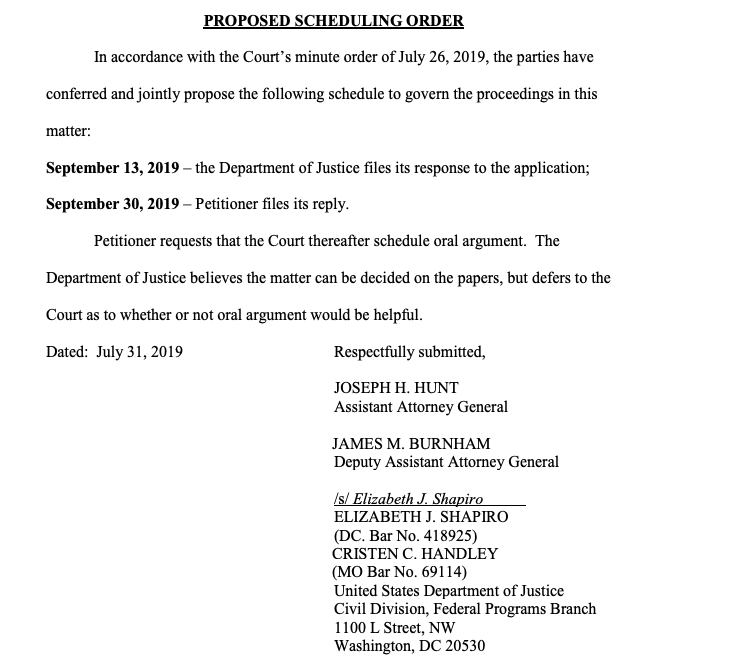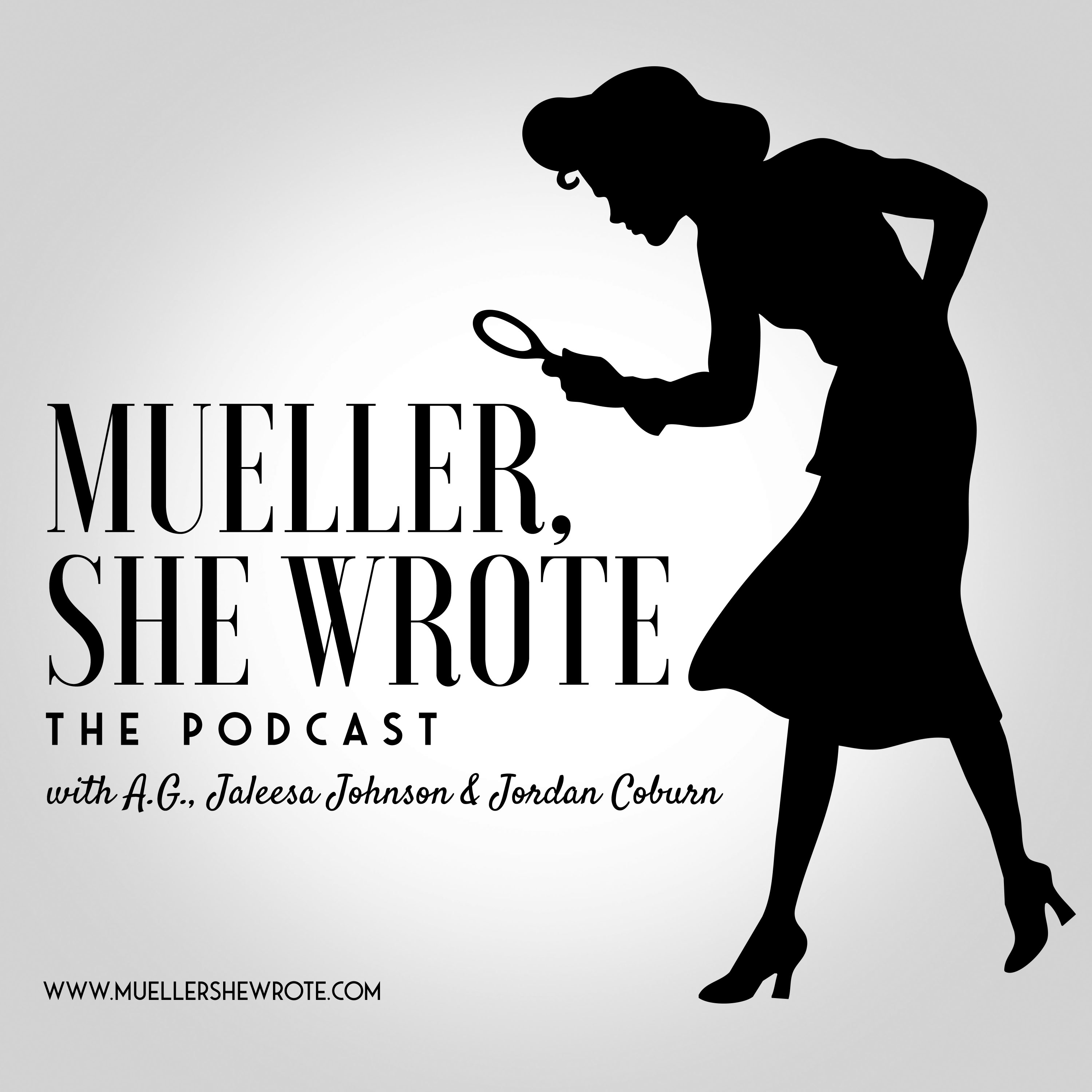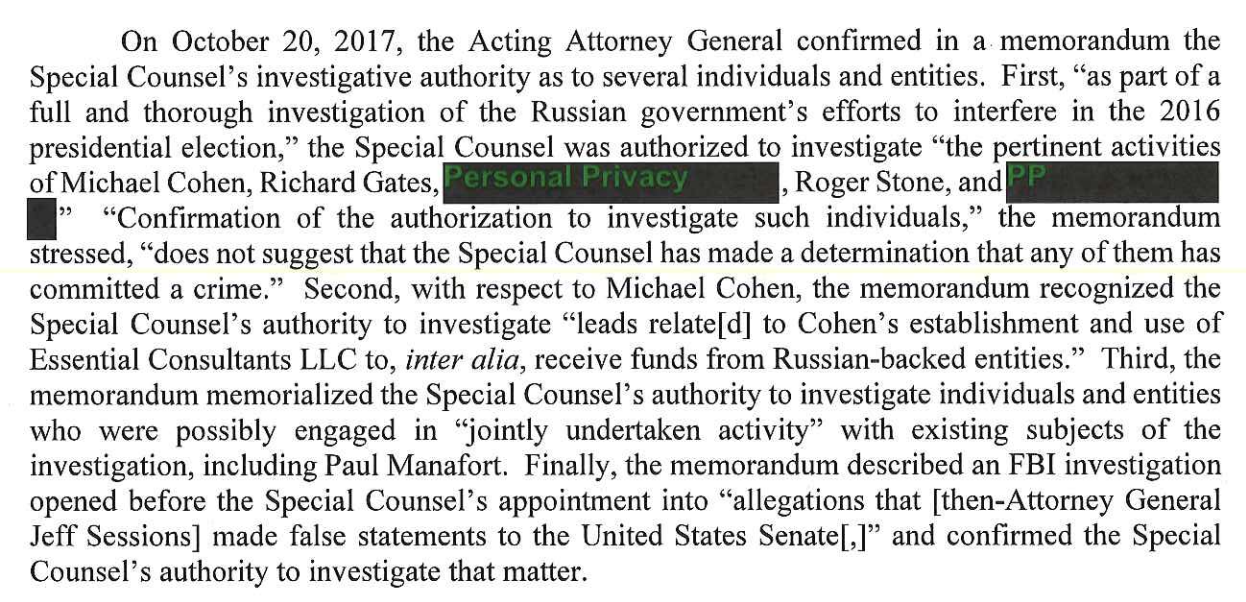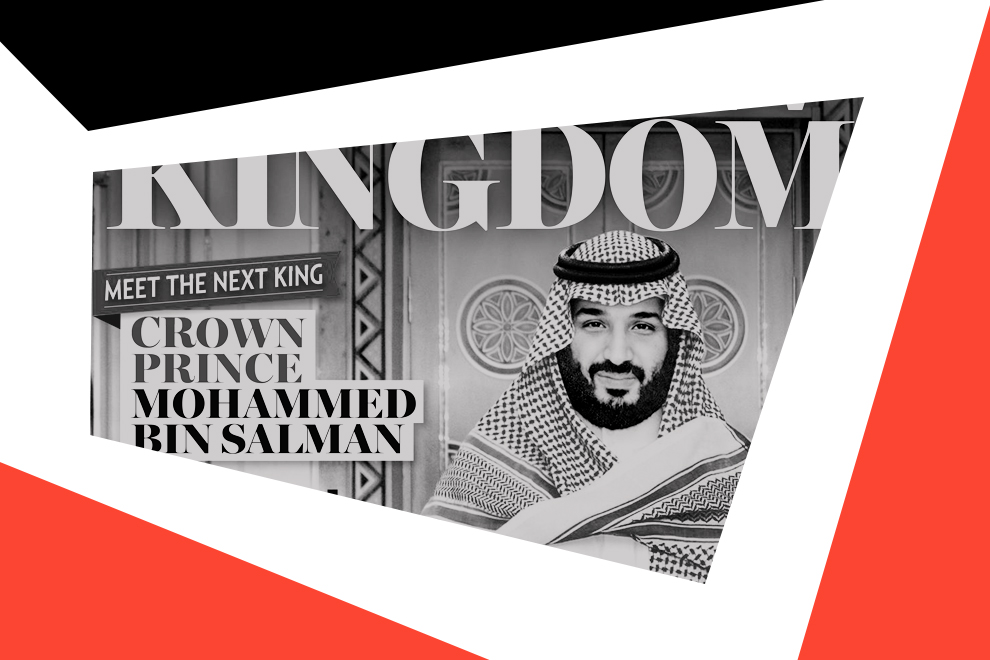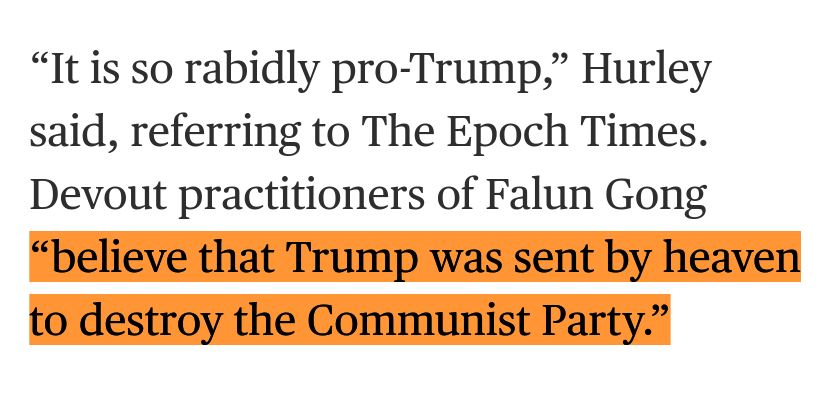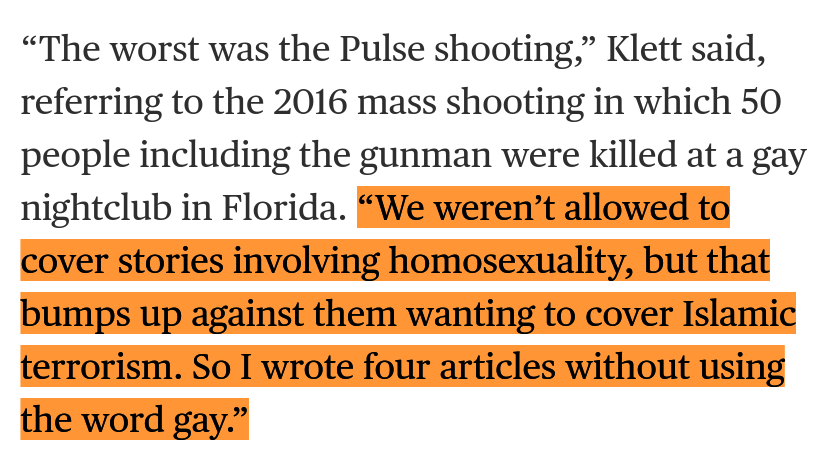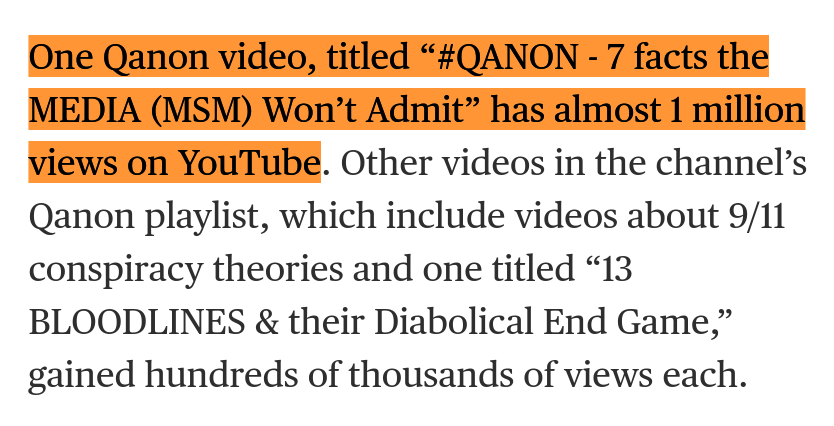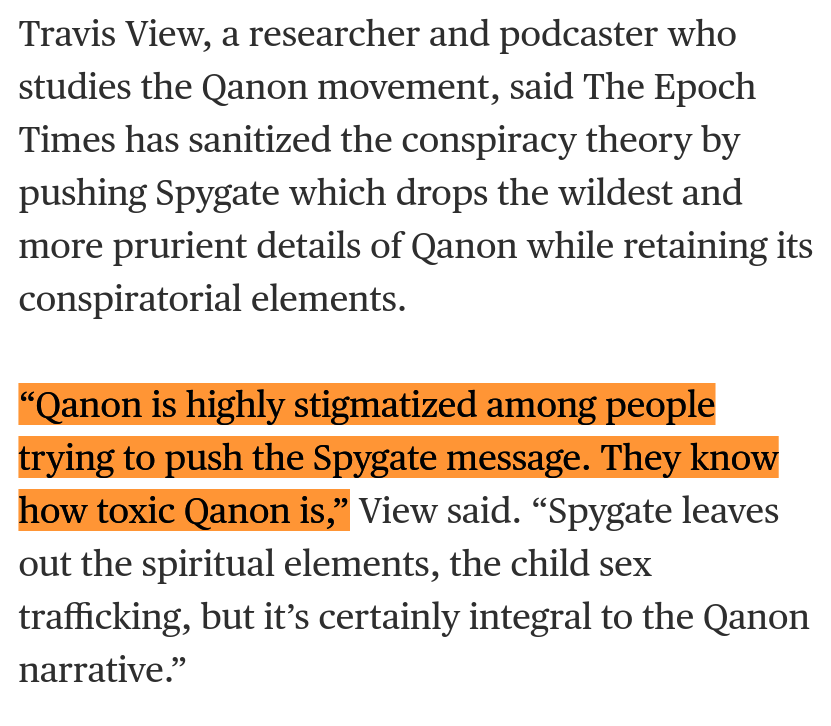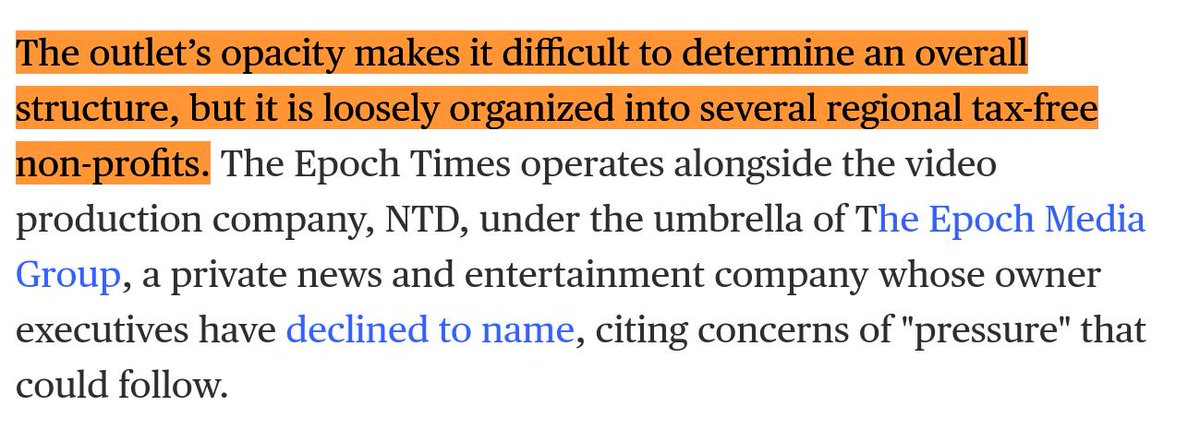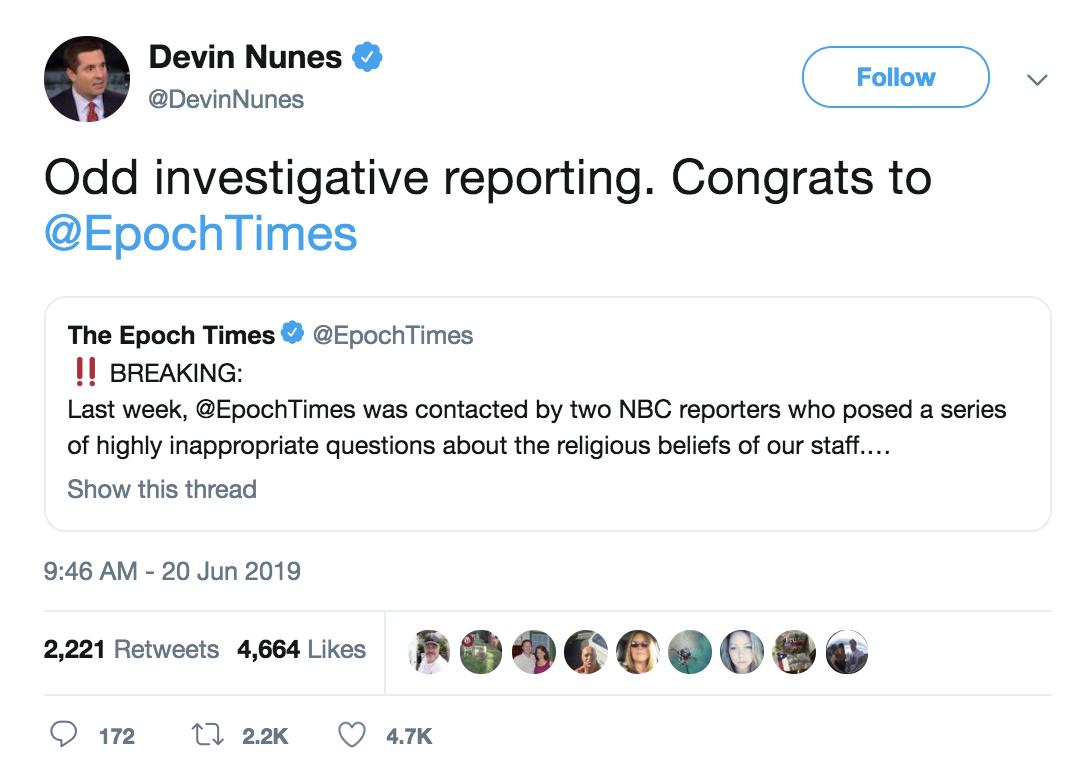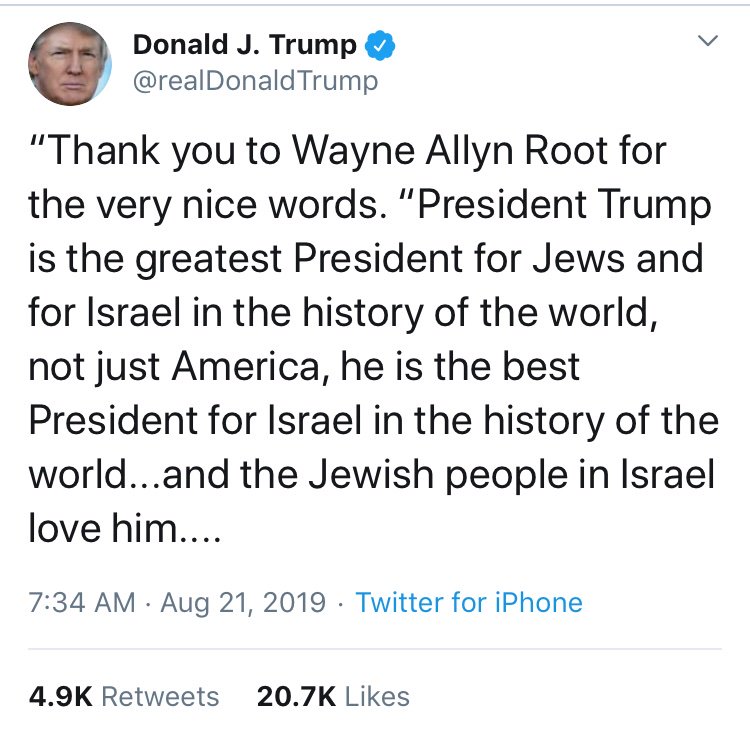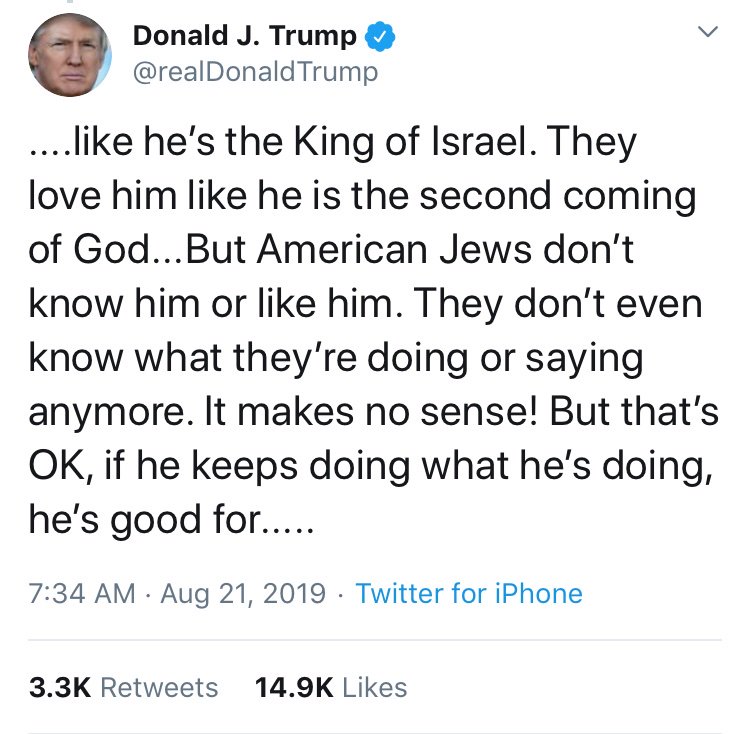How a Trump Ally Tested the Boundaries of Washington’s Influence GameAug 13, 2019
Elliott Broidy in 2008. Mr. Broidy, a fund-raiser for President Trump, is the subject of intensifying scrutiny by federal prosecutors.
Elliott Broidy in 2008. Mr. Broidy, a fund-raiser for President Trump, is the subject of intensifying scrutiny by federal prosecutors.David Karp/Associated Press
WASHINGTON — Elliott Broidy had the kind of past that might have given a more traditional White House reason to keep him at a distance: A wealthy businessman, he had pleaded guilty in 2009 to giving nearly $1 million in illegal gifts to New York State officials to help land a $250 million investment from the state’s pension fund.
But on a fall day in 2017, Mr. Broidy was ushered into the West Wing. For about two hours, he met with a handful of the most powerful people on earth, including President Trump, his chief of staff, his national security adviser and Jared Kushner, his son-in-law, discussing everything from personnel recommendations to the Republican Party’s finances.
Mostly, though, according to a detailed account he later sent to an associate, Mr. Broidy talked about the Middle East, a subject that had long been important to him personally and was becoming increasingly important to him financially.
As he sat with Mr. Trump, Mr. Broidy promoted a plan for a counterterrorism force backed by Saudi Arabia and the United Arab Emirates, which he said would be supported by his private security and intelligence company, Circinus, under the leadership of Stanley A. McChrystal, the retired Army general and former commander in Afghanistan.
And at a time when Mr. Broidy was running a multimillion-dollar advocacy campaign to turn Washington against Qatar, a regional rival of the Saudis and the Emiratis, he took the opportunity to tell Mr. Trump that Qatar was part of an “axis of evil,” according to his account of the meeting.
That meeting was one of the high points of a comeback by Mr. Broidy, who after having been shunned by some Republicans in the wake of his 2009 guilty plea had worked himself into Mr. Trump’s inner circle as a top fund-raiser for his 2016 campaign and inauguration.
The stature he suddenly assumed when Mr. Trump won the election allowed him to position himself as a premier broker of influence and access to the new administration. In the process, his international business came to overlap with his efforts to influence government policy in ways that have now made him the subject of an intensifying federal investigation.
But Mr. Broidy’s tour through the White House that day was also further evidence of how Mr. Trump — who initially lacked an established network of high-dollar fund-raisers, held unformed positions on many issues and had difficulty attracting top-tier talent — came to rely on people whose backgrounds and activities would have raised red flags in other campaigns and administrations.
Among them were Paul Manafort, who was the chairman of Mr. Trump’s campaign and was later indicted for lobbying and financial crimes, and Mr. Manafort’s deputy, Rick Gates, who also helped run Mr. Trump’s inauguration. Prosecutors are still investigating whether the chairman of the inaugural committee and a close friend of the president, Thomas J. Barrack Jr., violated lobbying laws.
Few figures exploited the moment more ambitiously than Mr. Broidy, whose Oval Office meeting was just one element of a sophisticated effort to amass and exert influence in Mr. Trump’s Washington.
Bolstering his own access to the administration, Mr. Broidy enlisted a host of prominent figures to advance the interests of his companies, his clients or his causes. In addition to General McChrystal, there was the former Trump adviser Stephen K. Bannon; former defense secretaries including Robert M. Gates and Leon E. Panetta; David H. Petraeus, the former C.I.A. director; and the longtime diplomat Dennis B. Ross. They gave paid speeches to groups he was funding, wrote op-eds or advised Mr. Broidy, wittingly or unwittingly becoming public faces of his efforts.
While Mr. Broidy seemed to find a sympathetic audience for his positions in the upper reaches of the administration, including his campaign against Qatar, other efforts appeared to yield little action, like an arrangement to help a Malaysian financier with legal problems in the United States. And some of Mr. Broidy’s proposals, like his plan to help set up the counterterrorism force in the Persian Gulf, went nowhere.
Stanley A. McChrystal, the retired Army general, accompanied Mr. Broidy and his team on a trip to the Middle East.
Stanley A. McChrystal, the retired Army general, accompanied Mr. Broidy and his team on a trip to the Middle East.Steven Senne/Associated Press
The Justice Department has been investigating, among other issues, whether Mr. Broidy violated the law by not registering as an agent of foreign interests at a time when he was promoting their causes and being paid by them, and whether, in one case, he was paid with laundered money to lobby. The Foreign Agents Registration Act, or FARA, requires Americans to disclose efforts to shape government policy or public opinion on behalf of foreign governments and political interests. Enforcing FARA has become an increasing priority for the Justice Department.
While Mr. Broidy’s advocacy efforts could have benefited his paying clients, his representatives say the efforts were not directed or funded by those clients in a way that would require FARA registration.
“Elliott Broidy has never agreed to work for, been retained or compensated by, nor taken direction from any foreign government directly or indirectly for any interaction with the United States government, ever,” said his lawyer, Chris Clark. “Any implication to the contrary is a lie.”
But the full scope and intensity of Mr. Broidy’s activities, and the investigations into them, are only now coming into focus. Interviews and records show that:
• Federal investigators are homing in on the question of whether his involvement with the government of the United Arab Emirates and the Malaysian financier may have run afoul of FARA.
• Investigators are exploring the financial links between Mr. Broidy, the government of the United Arab Emirates and one of that government’s advisers, George Nader. According to previously unreported banking records, Mr. Nader was paid millions of dollars by the United Arab Emirates as he was working closely with Mr. Broidy on two fronts: to win security and intelligence contracts from the Emirate and Saudi governments, and to direct and fund the campaign in Washington against Qatar.
• Other banking records show that the government of the United Arab Emirates continued to pay Mr. Broidy’s company tens of millions of dollars, including a payment of $24 million in late March, even as it became public that prosecutors were looking into his activities.
• Officials from one country with which Mr. Broidy has worked, Angola, say they believed his company was being paid to lobby on their behalf, rather than to provide private intelligence services, as Mr. Broidy’s representatives say.
• His efforts to help his clients in Washington were more extensive than previously known. They involved not just prominent political figures but also payments to influential think tanks, lobbyists and a nonprofit conservative media outlet that produced articles promoting his clients’ agendas and criticizing their rivals.
Four people Mr. Broidy worked with on business or advocacy efforts have been indicted. He resigned as deputy finance chairman of the Republican National Committee last year after it was revealed he had agreed to pay $1.6 million in hush money to a former Playboy model he impregnated, in a deal arranged by Michael D. Cohen, the president’s former lawyer.
Business Was Good, and Then It Wasn’t
Mr. Broidy’s current situation is a sharp turnabout from two and a half years ago, when he helped raise a record $107 million for Mr. Trump’s inauguration. He offered to arrange inaugural tickets for politicians from Angola, the Republic of Congo and Romania — countries from which he sought intelligence contracts worth as much as $266 million, documents and interviews show.
He greatly increased his giving to Republicans. He socialized with Mr. Trump at the president’s Mar-a-Lago resort, where he was a member.
Business was good. Mr. Broidy’s company won deals worth more than $200 million from the United Arab Emirates alone. The company established an office there that employs 60 people who compile intelligence reports for the U.A.E. government.
After The New York Times, The Associated Press and other news media outlets revealed last year that he had marketed his access to the Trump team to prospective foreign clients, his company lost lucrative United States government subcontracts. Members of Congress returned donations, as did the Hudson Institute, a think tank, which returned funding for a research project on Qatari influence. Mr. Ross returned $20,000 in consulting fees he had accepted in early 2018, when he was advising Mr. Broidy on how to pursue contracts with foreign governments and how to shape American foreign policy toward those governments.
Mr. Broidy offered inaugural tickets to politicians from Angola, the Republic of Congo and Romania — countries from which he was seeking defense intelligence contracts worth as much as $266 million.Todd Heisler/The New York Times
“There was a cloud that was created, and it made sense just to dissociate,” said Mr. Ross, who worked on Middle Eastern policy for administrations of both parties.
Some of the activities of Mr. Broidy and his associates are detailed in hundreds of documents and emails from the private accounts of Mr. Broidy and his wife, which were distributed to reporters anonymously starting in early 2018. Mr. Broidy sued Qatar and some of its lobbyists, accusing them of orchestrating the theft and dissemination of those documents, which Qatar denies.
Mr. Broidy’s spokesman, Nathan Miller, said those documents “have been altered and cherry-picked out of context to present a false narrative about his business activities and public educational efforts that were entirely legitimate and legal.”
But this account also relies on dozens of interviews, banking records provided by people familiar with Mr. Broidy’s work and other documents submitted in court cases or obtained through the Freedom of Information Act.
“He was certainly trying to influence the administration to adopt a policy that served his political preference,” Mr. Ross said in a July interview with The Times about his work with Mr. Broidy, some of which was subsequently reported by The Daily Beast. “Was he doing it because it would serve his business interests as well? Presumably yes.”
From Guilty Plea to Trump Fund-Raiser
Mr. Broidy, 62, made his own fortune. He grew up middle class in Los Angeles, and paid his way through the University of Southern California by operating a laundromat. After earning a bachelor’s degree in accounting and finance, he went to work for an accounting firm, before he was hired to handle the personal investments of one of the firm’s clients, Taco Bell’s founder, Glen Bell Jr., in the early 1980s.
After about a decade, Mr. Broidy started his own investment firm, Broidy Capital Management. He built a mansion in the hills of Bel Air and established a reputation as a generous philanthropist and pillar of Los Angeles’s Jewish community.
He assembled a large wine collection and indulged a fondness for expensive wristwatches, according to people who know him. They said he boasted that he was among the biggest private buyers of a type of 25-year-old whisky that retails for $1,800 a bottle.
After the Sept. 11, 2001, terrorist attacks, Mr. Broidy’s political and business focus turned toward national security in the United States and Israel.
In 2006, he was appointed by President George W. Bush, for whom Mr. Broidy had become a top fund-raiser, to a homeland security advisory panel and the Kennedy Center board of trustees. In October 2006, Mr. Bush attended a dinner at the Bel Air mansion that raised $1 million for the Republican Party.
Weeks later, Mr. Broidy and his wife, Robin Rosenzweig, were on the guest list for a White House reception for the Kennedy Center Honors.
After his 2009 guilty plea in the New York State pension fund case, which a court later reduced from a felony to a misdemeanor, Mr. Broidy retreated from the spotlight. Politicians whose campaigns he once funded turned their backs on him.
But his business ventures continued. He helped start a national security nonprofit group and a cyberdefense contracting company called Threat Deterrence, then purchased Circinus in 2015. Started after the 2001 terrorist attacks, Circinus says it provides cybersecurity, “force protection and operational training,” and open source intelligence services to governments.
Some of the activities of Mr. Broidy and his associates have come to light through the circulation of documents and emails from the private accounts of Mr. Broidy and his wife, Robin Rosenzweig.Alex Berliner/BEI, via Shutterstock
As the 2016 presidential campaign got underway, Mr. Broidy edged back into high-profile electoral politics, supporting a succession of senators seeking the Republican nomination, including Lindsey Graham of South Carolina, Marco Rubio of Florida and Ted Cruz of Texas.
When Mr. Cruz dropped out, Mr. Broidy enthusiastically began raising money for the Trump campaign.
On Top of the World at the Inaugural
In the weeks before Mr. Trump’s inauguration, Mr. Broidy was in the center of the action.
He helped organize and fund a private breakfast at the Trump International Hotel two days before the inauguration that was attended by 50 to 60 people, according to people familiar with the event.
The guest list featured officials from Africa, Eastern Europe and Arab nations, as well as Republicans with ties to the incoming administration, including Mr. Trump’s choice for national security adviser, Michael T. Flynn.
Mr. Broidy teamed with a Nigerian-American entrepreneur to pursue an intelligence contract with the Angolan government. An early draft of the deal called for payments of as much as $64 million over five years, but someone familiar with it said the final contract was for a smaller amount.
He offered to arrange access in Washington for a pair of powerful Angolan officials who had a hand in the contract.
Days before the inauguration, the Angolans paid $6 million to Circinus. And Mr. Broidy escorted an Angolan official, André de Oliveira João Sango, then the director of external intelligence, to introductory meetings with Republican lawmakers.
A couple of days later, Mr. Sango sat at a table adjacent to Mr. Broidy’s at an exclusive “candlelight” donor dinner sponsored by Mr. Trump’s inaugural committee and attended by the president-elect, according to another Angolan official.
While Mr. Broidy’s representatives say he was not required to register as a lobbyist because he did not accept funds for lobbying, Angolan diplomats in Washington saw things differently.
“It was basically to help assist in approaching the Trump administration,” Lucombo Joaquim Luveia, a counselor at the embassy, said of the payment to Circinus.
The Angolan ambassador at the time, Agostinho Tavares, said his impression was that Mr. Broidy “sold the invitation” to the inaugural to Mr. Sango.
Mr. Luveia said that “all those arrangements were back-channeled between the lobbyist Broidy and the central government, at the presidential level.” The Angolan president at the time, José Eduardo dos Santos, was replaced last year.
Mr. Broidy also provided access during inauguration week to a pair of Romanian politicians seen as critical to Circinus’s chances for doing business in the country. Mr. Broidy arranged an impromptu introduction to Mr. Trump during an informal dinner at the Trump hotel for Liviu Dragnea, then a powerful Romanian parliamentary leader.
George Nader presented himself as a liaison to Crown Prince Mohammed bin Zayed, center, the de facto ruler of the United Arab Emirates, and Saudi Arabia’s crown prince, Mohammed bin Salman, right.via Shutterstock
Circinus subsequently competed for Romanian government contracts valued at more than $200 million, according to the Romanian news media and people familiar with the contracting process. But the contracts did not materialize. Mr. Dragnea, who was facing unrelated corruption charges in Romania at the time of the inauguration, has since been convicted. And Romanian and American officials have questioned a former Circinus executive in Romania.
Hours after Mr. Trump’s swearing-in, Mr. Broidy was abuzz as he and his wife, holding hands, walked into a late-night party in a private room at the Trump hotel.
He approached a fellow Republican donor and, in a move the donor interpreted as an early flexing of new status, Mr. Broidy suggested it was time to settle a lingering business dispute between them.
“He was exuding hubris,” said the donor, Yuri Vanetik, a characterization disputed by Mr. Broidy’s representatives. “He wanted to show that it was his world now.”
A Flurry of Deal Discussions
Through the transition and the early days of the administration, Mr. Broidy entertained discussions about using his newfound connections in Washington to help an array of foreign clients.
After being approached by a lawyer working with Russian executives who were under sanctions, Mr. Broidy devised a plan to try to lift the sanctions in exchange for $11 million — a deal that ultimately was not pursued.
Separately, Mr. Broidy discussed helping to end a Justice Department investigation into a flamboyant Malaysian financier who was suspected of embezzling billions of dollars from a Malaysian investment fund.
The financier, Low Taek Jho, known as Jho Low, transferred $6 million to the law firm of Mr. Broidy’s wife, Ms. Rosenzweig, to finance the effort, according to a guilty plea for bank fraud by a former Justice Department employee in a related case.
Allies of Mr. Low also talked with Mr. Broidy about using his connections to force the extradition of a Chinese dissident living in the United States, according to the court filings.
Mr. Broidy’s lawyers said their client never discussed assisting Mr. Low in any criminal matters and never lobbied to resolve the civil issues facing the financier.
A Key Partnership
Mr. Trump took office signaling a new approach to the Middle East, setting off a scramble by governments in the region to assure that their voices would be heard by the new administration. A key figure in Mr. Broidy’s activities was Mr. Nader.
An American citizen born in Lebanon, Mr. Nader, 60, entered Mr. Broidy’s life at a fortuitous moment for both men and for Mr. Nader’s patrons — primarily Crown Prince Mohammed bin Zayed, the de facto ruler of the United Arab Emirates, though Mr. Nader also presented himself as a liaison to Saudi Arabia’s crown prince, Mohammed bin Salman.
To the princes, whose countries are closely allied, Mr. Broidy was a perfect messenger to try to turn the new American administration against Qatar.
Rick Gates, the former deputy chairman of the Trump campaign, is one of a number of Trump aides to have run into legal problems.Erin Schaff for The New York Times
And to Mr. Broidy, Mr. Nader was a perfect messenger to pitch Circinus’s services to the wealthy governments of the Emirates and Saudi Arabia.
Not long after meeting at the Trump hotel during inauguration week, Mr. Broidy and Mr. Nader were exchanging messages about Circinus’s efforts to win hundreds of millions of dollars’ worth of defense contracts with the Persian Gulf nations, and discussing the anti-Qatar campaign, according to documents and interviews.
Mr. Nader wired Mr. Broidy $2.4 million in three installments, starting less than three months after the inauguration, for the anti-Qatar public policy effort. Mr. Broidy contributed his own money, according to people familiar with the campaign. They said other donors contributed as well.
Mr. Broidy donated to two Washington think tanks — the Foundation for Defense of Democracies and the Hudson Institute — to fund conferences he intended to be critical of Qatar. Featured speakers included the former defense secretaries Mr. Panetta and Mr. Gates, as well as Mr. Bannon and Mr. Petraeus.
Mr. Gates and Mr. Bannon were paid about $100,000 each, while Mr. Petraeus was paid $50,000, according to interviews and contracts, which stipulated that Mr. Gates and Mr. Petraeus would meet privately with Mr. Broidy on the sidelines of the conference. The think tanks paid the speakers and were reimbursed by Mr. Broidy. Mr. Nader helped arrange Mr. Bannon’s appearance, The Daily Beast reported.
Mr. Broidy assured the think tanks that he was using only his own money and that it was not from foreign sources, according to people familiar with the conferences, who said he did not disclose that he was simultaneously pursuing business in the region.
But updates sent by Mr. Broidy to Mr. Nader list Circinus as the entity overseeing the advocacy campaign, which included plans for the conferences, op-eds, articles and congressional and media outreach, including to the Fox News host Sean Hannity, a favorite of Mr. Trump.
One update lists the Emirati and Saudi governments as the “clients” of the campaign, and a senior Saudi general, Maj. Gen. Ahmed al-Assiri, who would later be blamed by his country’s leadership for the killing of the journalist Jamal Khashoggi, as a consultant. Mr. Broidy’s lawyers say that the updates were early drafts and that references to the involvement of Circinus and the Saudi and Emirati governments were errors that were corrected in subsequent drafts.
Banking records obtained by The Times show that, months after the first think-tank conference, and days before the second, Mr. Nader received the first of two payments of about $5 million worth of Emirati currency from an entity controlled by the government of the United Arab Emirates.
“Any payments by the U.A.E. to Mr. Nader had absolutely nothing to do with the conferences or the broader educational initiative,” said Tim McCarten, a lawyer with the firm Latham & Watkins, who represents both Mr. Nader and Mr. Broidy. Mr. McCarten declined to specify the purpose of the payments.
The second $5 million payment came months after Mr. Nader began cooperating with prosecutors looking into whether Emirati money was funneled into Mr. Trump’s political operation.
The Justice Department has asked witnesses about the funding of the anti-Qatar campaign, as well as whether foreign money flowed into Mr. Trump’s inaugural.
In April, federal prosecutors in Brooklyn issued a subpoena for documents from the inaugural committee naming Mr. Broidy and companies with which he is associated, as well as Mr. Nader. Among others named were Mr. Dragnea, the Angolan politician Mr. Sango and Angola’s current president, João Lourenço. Mr. Lourenço previously served as the head of the Angolan Defense Ministry, and was also invited by Mr. Broidy to attend the inauguration, but did not go, according to the Angolan diplomats.
Leon E. Panetta, a former defense secretary, is among the prominent figures Mr. Broidy enlisted to advance the interests of his companies, his clients or his causes.Damon Winter/The New York Times
Mr. Nader was charged in June with possession of child pornography, to which he has pleaded not guilty.
Putting Washington to Work
The direct impact of the anti-Qatar advocacy campaign is not clear. It coincided with Mr. Trump’s public criticism of Qatar, and his expression of support for Qatar’s rivals, the Emiratis and the Saudis, though his administration attempted to walk back some of the criticism.
Mr. Broidy paid $10,000 a month to a Democratic firm, Bluelight Strategies, which worked to harness the center-left to press the administration to be tough on Qatar, according to emails and interviews.
Mr. Broidy gave $25,000 to a nonprofit group called the Jewish Institute for National Security of America to write op-eds and host news conferences criticizing Qatar, including with a retired Air Force general, Charles F. Wald.
Another nonprofit listed by Mr. Broidy as part of the advocacy campaign, the American Media Institute, received $240,000 from Mr. Broidy in 2017, according to its tax returns. Mr. Broidy and his allies were in close contact with the group’s staff as it produced articles and op-eds that advanced the interests of his clients and prospective clients, including the government of Malaysia, while criticizing their rivals, including Qatar and the Chinese dissident.
Richard Miniter, the institute’s chief executive, said its decisions were based on news judgment, rather than Mr. Broidy’s wishes. “We get tons of ideas from both donors and nondonors, but there were no conditions on the grant to do those stories,” he said.
Mr. Miniter said he was unaware before being alerted by The Times of overlap between Mr. Broidy’s business and the subjects he wanted covered.
In correspondence around the time of the Hudson Institute conference, Mr. Broidy cited Mr. Panetta and General Wald — as well as General McChrystal — as members of Circinus’s team.
The men or their representatives say those claims were exaggerated or false.
General McChrystal acknowledged that he accompanied Mr. Broidy and his team on a trip to the Middle East, where they met with Prince Mohammed bin Zayed in the summer of 2017.
The trip came after Mr. McChrystal was offered $100,000 by Mr. Broidy, according to documents and interviews.
When Mr. Broidy later dropped the general’s name in the Oval Office, Mr. Trump interjected to say that “he thinks highly of General McChrystal,” according to Mr. Broidy’s readout.
Mr. McChrystal said he accompanied Mr. Broidy to the United Arab Emirates because it seemed as if his company was pursuing worthwhile work. But he said he declined a subsequent offer for a leadership role in the company because “it didn’t fit into my time or my interests to do any more.”
Mr. Panetta’s office said he “is not and has never been involved in” Mr. Broidy’s business.
General Wald said he turned down Mr. Broidy’s invitation to join Circinus because he felt the company’s work was “mercenary,” and because of concerns about Mr. Broidy.
“Broidy is playing for both political and financial reasons,” he said, “and it’s hard to figure out which one he is interested in mostly.”
David D. Kirkpatrick contributed reporting from London, and Declan Walsh from Cairo.
http://archive.is/DpwHd 


